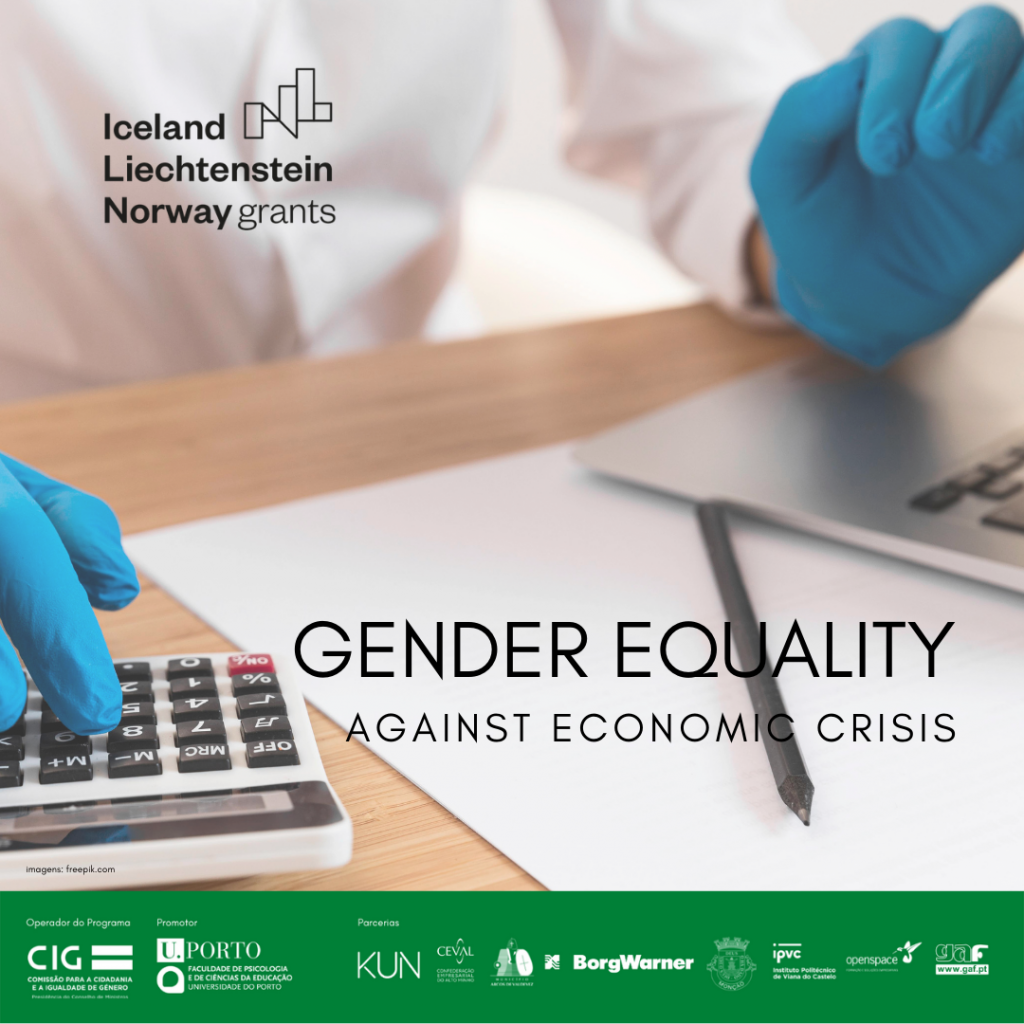
COVID-19 pandemic, in addition to the tragic life losses, has exacerbated social and economic inequalities in multiple ways, including those in workplaces, and has affected disproportionately the most vulnerable people1.
The International Labour Organization (ILO) anticipates that the collective task of reducing these inequalities will be extremely challenging2, but in a “global call to action for a people-centred recovery from the COVID-19 crisis”1, it outlines strategies to minimize asymmetries in the future.
All crises generate gender-differentiated effects. The financial crisis of the late first decade of the 2000s had a more profound economic impact on men, since it mainly affected the financial and construction sector, where they are over-represented2. COVID-19 crisis, on the other hand, has affected women more, as a result of preexisting sex segregation at work: clearly more present in the hardest-hit sectors, “many continue to work on the front line, sustaining care systems, economies and societies” while continuing to do the majority of unpaid care work and household chores1. Besides, they are also disproportionately present in areas of work that were closed during periods of confinement, which exposed them to greater risk of losing work and income1, widening the inequality gap. Regardless the unequivocal benefits during the pandemic, even working from home has exacerbated the effect of inequalities in unpaid domestic work: working mothers were the group that reported spending more time on domestic chores and childcare than before the pandemic, increasing family conflict and challenging their mental health2.
It is therefore clear that strategies to combat the crisis must consider these gender issues, and, according to the ILO, “urgent and coordinated action is needed to contain growing inequality (…) and get economies back on track for a fully inclusive, sustainable and resilient recovery from the crisis “1.
Recognizing the fundamental role of the private sector in this recovery and in economic development, companies must be aware and prepared to contribute to gender equality and the fight against discrimination in workplaces, adopting a profoundly transformative agenda that will be key to reducing disparities and ensuring social justice for women and men2.
Thus, through the combination of public policies and organizational practices, the path proposed by the ILO to overcome the crisis resulting from COVID-19 is based on a people-centred approach and includes1:
- adapting the ways of working from home and new working arrangements to increase decent work opportunities;
- ensuring the principle of equal pay for equal work, underpinned by wage transparency;
- promoting the use of paid family care leave to achieve a more balanced division of family and domestic responsibilities
encouraging lifelong learning, increasing the skill repertoire of both male and female workers; - removing obstacles to entry and career progression;
- preventing gender-based violence and harassment and activating protection mechanisms against them;
- promotion of equality, diversity and inclusion, aiming at the elimination of any form of discrimination, violence and harassment based on any ground such as sex/gender, gender identity, sexual orientation, age, ethnicity, religion, social origin, nationality, among others.
Sharing this vision of a sustainable economic growth centered in people and capable of reducing inequalities, bridGEs project supports companies in Alto Minho to implement equality promoting measures, making them more responsible, inclusive and committed to the future and social justice, and therefore more productive and competitive.
BridGEs – Alto Minho Companies for Gender Equality, promoted by the Faculty of Psychology and Education Sciences of the University of Porto and operated by the Commission for Citizenship and Gender Equality, is a project of Work-Life Balance and Gender Equality Programme of the European Economic Area Financial Mechanism – EEA Grants.
1. ILO (2021). Trabalho em tempos de COVID, Relatório do diretor-geral, Conferência Internacional do Trabalho, 109.a sessão, Genebra. Consultado em: https://www.ilo.org/wcmsp5/groups/public/—europe/—ro-geneva/—ilo-lisbon/documents/publication/wcms_795276.pdf
2. ILO (2021). Inequalities and the world of work International Labour Conference 109th Session. Consultado em: https://www.ilo.org/wcmsp5/groups/public/—ed_norm/—relconf/documents/meetingdocument/wcms_792123.pdf
